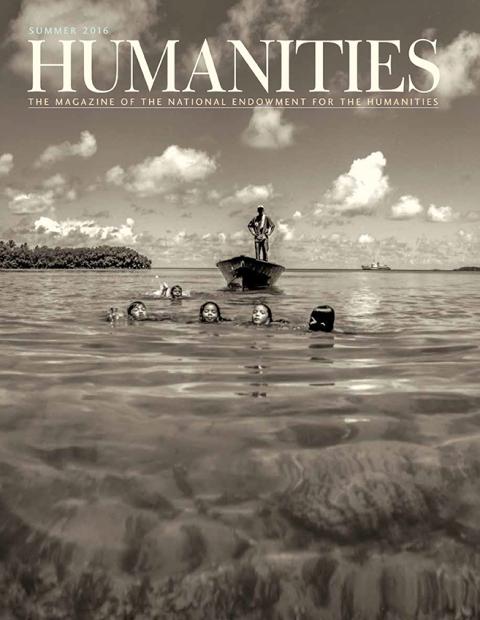As magnolia trees lazily blossom here in Washington, and all across America unsmiling teenagers in sunglasses climb atop lifeguard chairs at local swimming pools, Humanities magazine sits back to savor a variety of stories and essays.
The Pulitzer Prize turns 100 this year and many state humanities councils have responded to the call to celebrate their homegrown prizewinning reporters, writers, composers, and so on. Guam, a small island that sits about 6,000 miles west of Los Angeles, has produced one Pulitzer winner, the photographer Manny Crisostomo, whose career is now the subject of a major exhibition supported by the Guam Humanities Council. His magical photo of children swimming under an adult’s watchful eye adorns the cover.
For this issue, I visited New York City to spend a day with Judith Dupré, the first NEH Public Scholar to release a book, One World Trade Center. Dupré showed me around the new skyscrapers of Lower Manhattan, from the heights of the Observation Deck at One World Trade Center to the emotional depths of the 9/11 Museum. It was an extraordinary day, only some of which I was able to capture.
Summer is a great time for tackling literary classics. Danny Heitman revisits Speak, Memory by Vladimir Nabokov, itself a revisiting of the author’s aristocratic youth in the world about to be torn asunder by the Russian Revolution. Light fiction might seem best for the beach, but there is something about a summer afternoon, so long, so well-lit, that is especially welcoming to the intensely perceptive observations of great writing.
Reading liberates the mind from its present place and time, a familiar observation that has inspired such life-changing programs as the celebrated and NEH-supported Clemente Course in the Humanities for impoverished adults. Nancy Shepherdson reports on another humanities educational program, this one for prisoners of a maximum-security facility in Illinois.
Memory is not entirely reliable, as Nabokov knew and psychology points out. Steven Lubet and Rachel Maines examine an object with a great story to tell, though its actual significance is hard to disentangle from the memories surrounding it. The object is a shawl that the poet Langston Hughes donated to the Ohio Historical Society. It draws our attention to the events at Harpers Ferry in October 1859, but it also teaches some unexpected lessons.
Enjoy.

